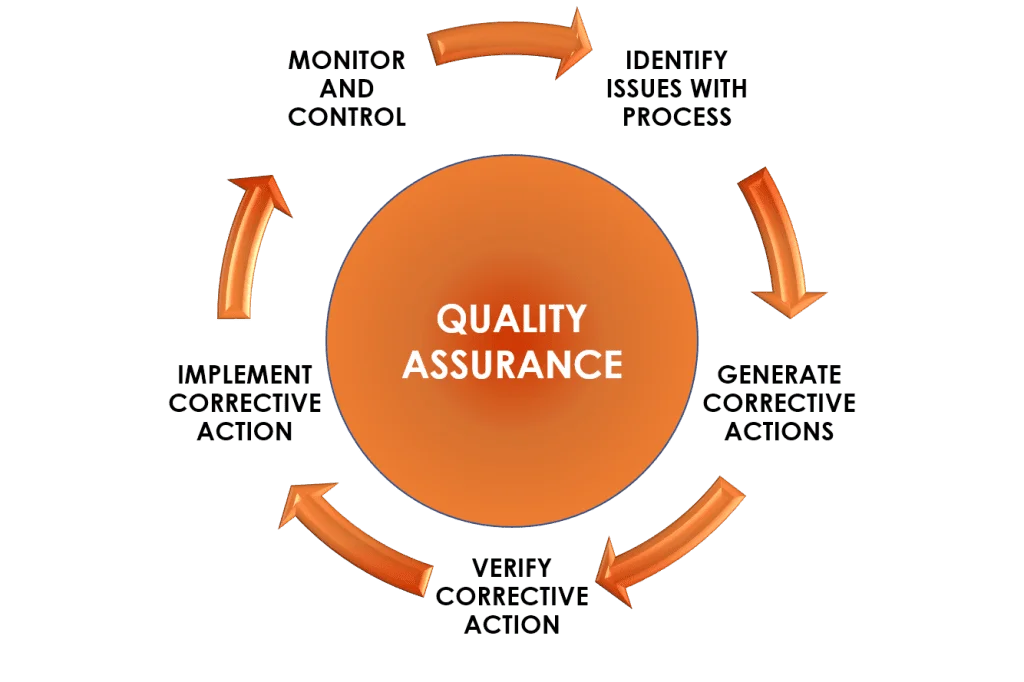Quality Assurance (QA)
Quality Assurance (QA)
What is Quality Assurance (QA)
Definition:
Quality Assurance (QA) is a systematic process implemented within software development to ensure that products and services meet predefined quality standards and user expectations. It involves a set of activities, techniques, and methodologies designed to prevent defects, identify inconsistencies, and enhance the overall quality of software products throughout the development lifecycle.
Analogies:
Consider Quality Assurance as the rigorous inspection process employed in manufacturing industries. Just as manufacturers meticulously examine products to ensure they meet quality standards and specifications, QA teams scrutinize software to guarantee it functions as intended, is user-friendly, and meets performance benchmarks.
Key Components of Quality Assurance:
- Requirements Analysis: QA begins with a thorough analysis of project requirements, user stories, and acceptance criteria to ensure a clear understanding of customer expectations and project objectives.
- Test Planning and Strategy: QA professionals devise comprehensive test plans and strategies outlining the scope, objectives, and methodologies for testing various aspects of the software, including functionality, performance, security, and usability.
- Test Case Development: Test cases are meticulously crafted to validate different features, functionalities, and scenarios within the software application. Each test case outlines specific steps, expected outcomes, and acceptance criteria.
- Execution and Automation: QA engineers execute test cases manually or automate the testing process using specialized tools and frameworks to increase efficiency, repeatability, and test coverage across different platforms and environments.
- Defect Tracking and Management: During testing, defects and issues are identified, documented, and tracked using dedicated defect tracking systems or project management tools. QA teams collaborate with development teams to resolve issues promptly.
- Performance Monitoring: QA involves continuous monitoring of software performance metrics, such as response times, load times, and resource utilization, to identify bottlenecks, optimize performance, and enhance user experience.
- Regression Testing: As software evolves and new features are added, QA teams conduct regression testing to ensure that existing functionality remains intact and unaffected by changes made to the codebase.
Why Quality Assurance Matters:
- Customer Satisfaction: QA ensures that software products meet or exceed customer expectations, resulting in higher user satisfaction, retention, and loyalty.
- Risk Mitigation: By identifying and addressing defects early in the development process, QA helps mitigate the risk of costly rework, project delays, and negative impact on brand reputation.
- Compliance and Standards: QA ensures that software products comply with industry standards, regulatory requirements, and best practices, minimizing legal and financial risks associated with non-compliance.
- Continuous Improvement: QA fosters a culture of continuous improvement within development teams, encouraging feedback, collaboration, and learning from past experiences to drive innovation and excellence.
Key Takeaways:
- Quality Assurance is a vital component of software development, encompassing a range of processes, techniques, and methodologies aimed at delivering high-quality, reliable, and user-centric software solutions.
- By implementing robust QA practices, organizations can enhance product quality, reduce time-to-market, and gain a competitive edge in today’s dynamic and demanding market landscape.
- Embracing a proactive approach to QA enables organizations to build trust with customers, foster innovation, and achieve long-term success in an increasingly digital and interconnected world.





